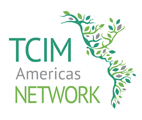Traditional medical systems and their contribution to planetary health
Many medical products and advances such as certain medicines and vaccines, among others, base their origin in natural resources, which themselves are intimately connected with traditional ways of knowing and traditional medical systems. Traditional medicine knowledge has social, cultural and scientific value and is critical to Indigenous peoples and to local communities. Historically, traditional medicine has been the basis for the development of a large part of scientific knowledge.
Some salient examples of this include medications such as aspirin, morphine, quinine, artemisinin, digoxin, vincristine, taxol, ergotamine, pilocarpine, ephedrine, atropine and some corticosteroids. These and many others are pharmaceuticals derived from medicinal plants, and some of the source materials have been used since ancient times to treat various illnesses and promote health as part of traditional medical systems. It is estimated that approximately 50% of pharmaceuticals used today are derived from plants.
More than 80% of people around the world have used some form of traditional medicine knowledge as part of self-care, and in some countries, up to 70% of the population uses traditional medicines as their main source of primary care.
Soon in this section you will find detailed information regarding the contributions that traditional medicines have and continue to make to other medical systems in the region.


